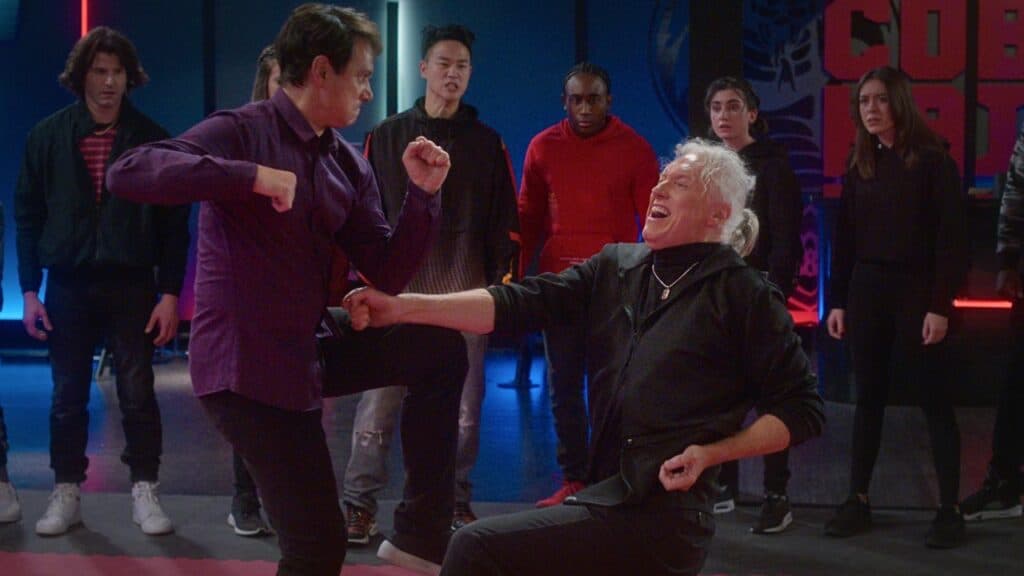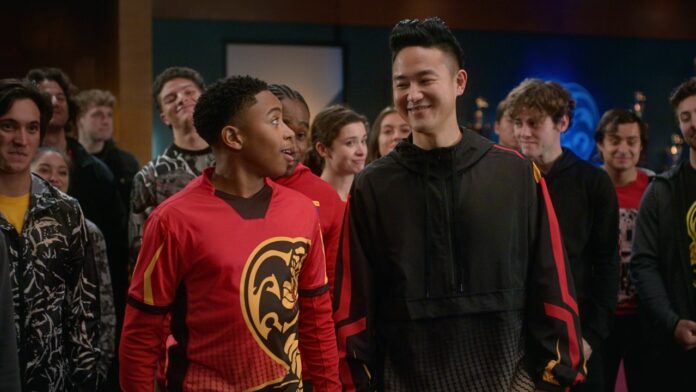Cobra Kai is a martial arts dramedy set in California and focuses on Daniel LaRusso and Johnny Lawrence as well as their young students.
Cobra Kai, a sequel to the iconic Karate Kid movies, delves into various themes central to the adolescent experience, one of which is bullying.
The show provides a multifaceted exploration of this issue, reflecting the complexities of modern-day high school life and beyond.
The Evolution of Bullying
From Physical to Psychological
In Cobra Kai, bullying is not limited to physical aggression, as commonly depicted in older narratives.
The series expands the concept to include psychological and cyberbullying, showcasing how these forms can be just as damaging.
This broader perspective aligns with contemporary understandings of bullying, emphasizing its varied and evolving nature.
The Cycle of Bullying
Perpetrators and Victims
One of the striking aspects of Cobra Kai is its portrayal of how victims can become bullies themselves.
Characters like Hawk transform from being bullied to becoming aggressors, highlighting the cyclical nature of bullying.
The series illustrates that without proper guidance and support, individuals who suffer from bullying might adopt similar behaviors as a coping mechanism or out of a desire for retribution.
Mentorship and Influence
Role of Adults
Cobra Kai emphasizes the influential role of adults in addressing or exacerbating bullying.
The contrasting teaching philosophies of Johnny Lawrence and Daniel LaRusso, representing the Cobra Kai and Miyagi-Do dojos, respectively, demonstrate how mentors can either fuel or mitigate aggressive behaviors in their students.
The show underscores the responsibility of adults in guiding young people and shaping their attitudes towards violence and conflict resolution.

Bullying and Character Development
Growth and Redemption
The series offers narratives of personal growth and redemption related to bullying.
Characters who engage in bullying are provided opportunities for self-reflection and change, suggesting that negative behaviors do not define a person entirely.
This approach in Cobra Kai fosters a more nuanced understanding of bullies as complex individuals capable of change, rather than one-dimensional antagonists.
Addressing Underlying Causes
Beyond the Surface
Cobra Kai delves into the underlying causes of bullying behavior, such as family dynamics, personal insecurities, and societal pressures.
By exploring these root causes, the show advocates for a deeper understanding of why bullying occurs, emphasizing the importance of addressing these foundational issues in efforts to combat bullying effectively.
Conclusion
Cobra Kai offers a compelling and nuanced examination of bullying, capturing its various forms and the complexities surrounding it.
The series highlights the importance of mentorship, the potential for personal change, and the need to understand the deeper causes of bullying.
Through its multifaceted portrayal, Cobra Kai contributes to a more comprehensive and empathetic understanding of bullying and its impact on individuals and communities.

